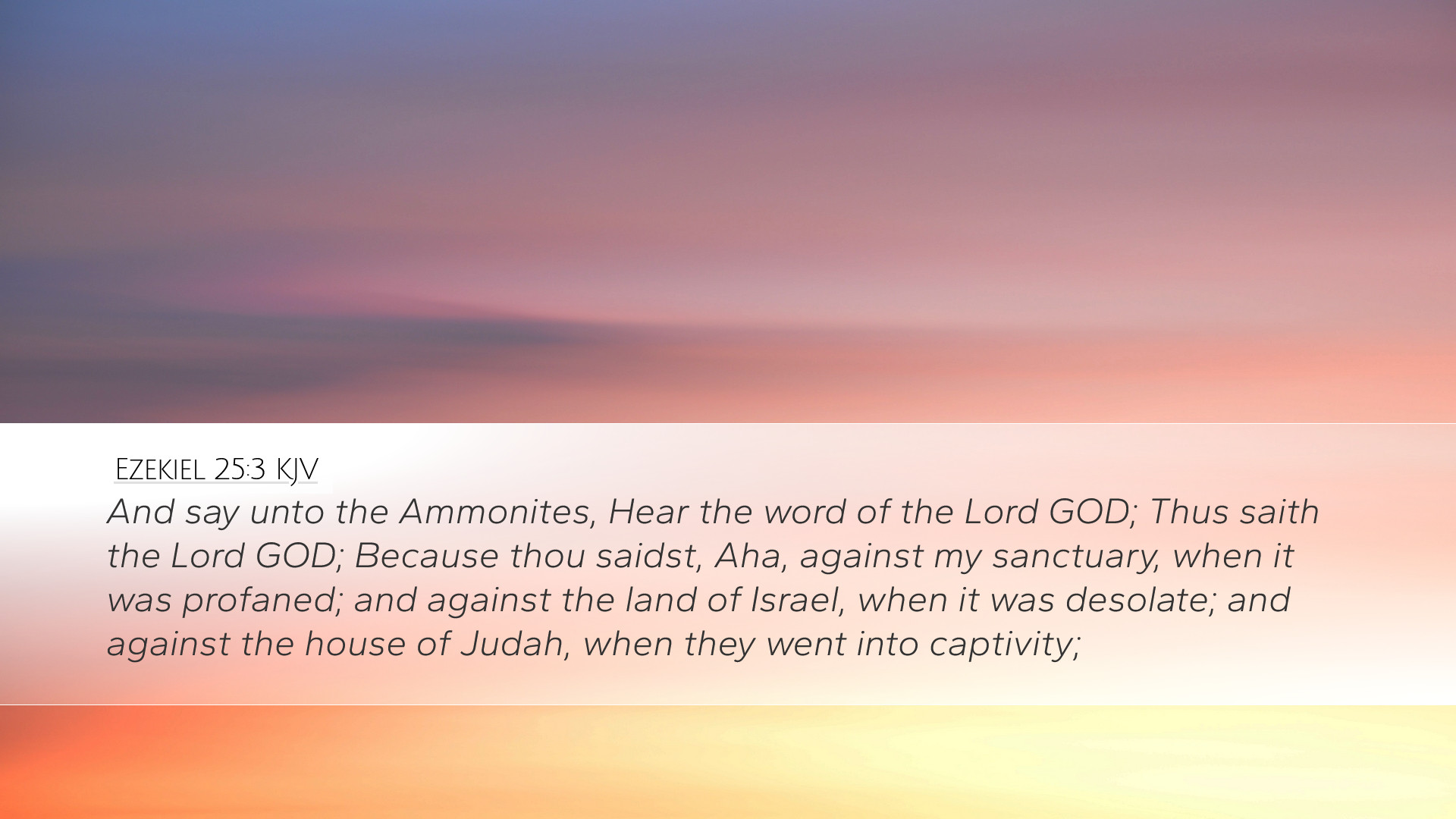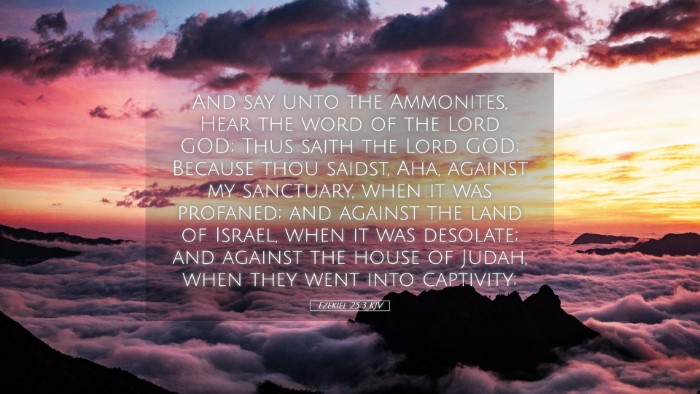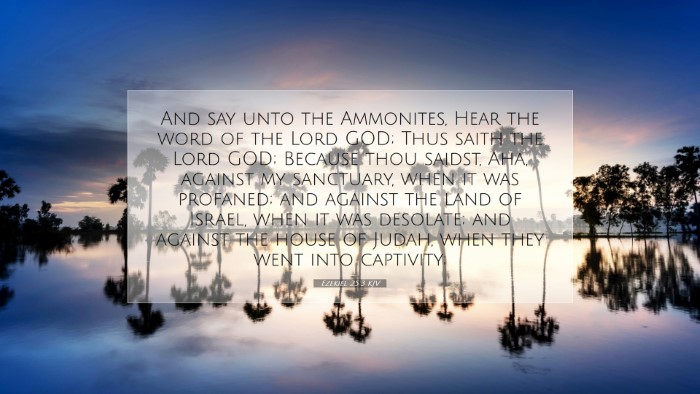Ezekiel 25:3 Commentary
Bible Verse: "And say to the Ammonites, Hear the word of the Lord God: Thus says the Lord God: Because you said, 'Aha!' against My sanctuary when it was profaned, and against the land of Israel when it was desolate, and against the house of Judah when they went into captivity," (Ezekiel 25:3, NKJV).
Introduction
This verse is part of a larger passage in Ezekiel where the prophet delivers a series of oracles against the nations surrounding Israel. In this context, Ezekiel is addressing the Ammonites, condemning their attitudes towards the misfortunes of God’s people. This commentary will explore the implications of this verse as interpreted by historical biblical scholars such as Matthew Henry, Albert Barnes, and Adam Clarke.
Contextual Analysis
The prophecy against the Ammonites must be understood in the broader context of God's justice and mercy as revealed through the lens of His covenant with Israel. The Ammonites' mocking of Israel's downfall indicates not only a profound lack of compassion but also an understanding of their own precarious position as a people who had similarly faced divine wrath.
Historical Background
The Ammonites were neighbors to Israel, often in conflict with them. Historical interactions are crucial in forming the backdrop of Ezekiel's message. The mocking ('Aha!') of the Ammonites suggests a schadenfreude attitude towards the suffering of God's people, demonstrating their ignorance of the covenantal relationship that the Lord held with Israel.
Theological Insights
Scholars have pointed out that this passage addresses themes of justice, divine retribution, and the consequences of national pride and animosity against God’s people.
Matthew Henry's Commentary
Condemnation of the Ammonites: Henry emphasizes that the Lord’s response is not only a rebuke for their mockery but also a declaration of judgment. The Ammonites' actions are indicative of a heart devoid of understanding of God's governance over nations. Henry encourages readers to recognize that no nation stands outside the reach of divine judgment.
Albert Barnes’ Commentary
Divine Justice: Barnes illustrates that God's judgment upon Ammon is direct retribution for their "taunting" against His people. This act of derision reveals a deeper truth about how nations relate to the people of God. Barnes urges that the events in history serve as warnings for all nations concerning their treatment of God's chosen ones.
Adam Clarke's Commentary
Symbols of Suffering: Clarke brings attention to the Ammonites' response as a reflection of human nature – taking pleasure in the suffering of others. He notes that their conduct not only illustrates their character but also sets before us the serious consequences of celebrating the misfortunes of others. Clarke calls for self-examination on attitudes towards others in distress.
Practical Applications
- The Importance of Compassion: This verse challenges believers to examine their responses to the suffering of others. Are we empathetic and supportive, or do we revel in the misfortunes of those we consider adversaries?
- Understanding God’s Sovereignty: The divine judgment upon the Ammonites reveals that God monitors not only the actions of His people but also the nations at large. This serves as an invitation to engage with others in a manner that honors God’s sovereignty.
- Warning Against Arrogance: The mocking of Israel by the Ammonites serves as a reminder of the dangers of arrogance and pride. Believers are urged to remain humble, recognizing that we are all under God’s authority.
- National Identity and Accountability: There is a pressing application regarding how nations conduct themselves. Are they embodying justice and mercy reflective of God’s character, or are they succumbing to pride and mockery?
Conclusion
Ezekiel 25:3 offers a potent reminder of God’s justice and the vital importance of aligning our hearts with His perspective towards suffering and sin. As illustrated through the commentaries of Matthew Henry, Albert Barnes, and Adam Clarke, we are summoned not only to reflect on our attitude towards national histories but also to cultivate a heart posture that mirrors the compassion and justice of Christ. The Ammonites’ scorn highlights a rubric for our own soul-searching as we consider our standing before God in our interactions with others, particularly those who are vulnerable and marginalized.


